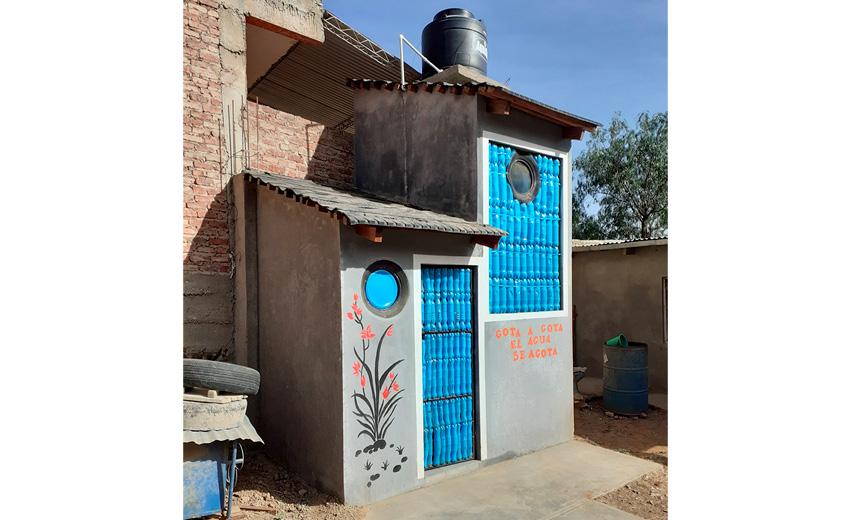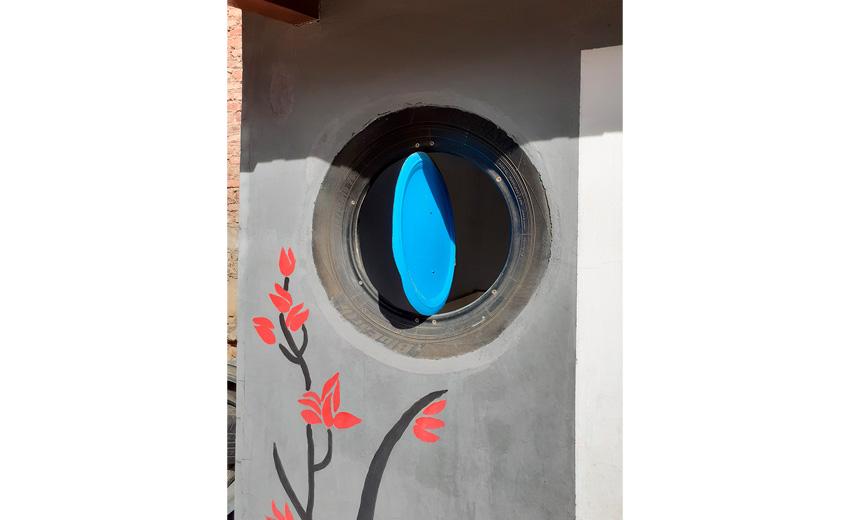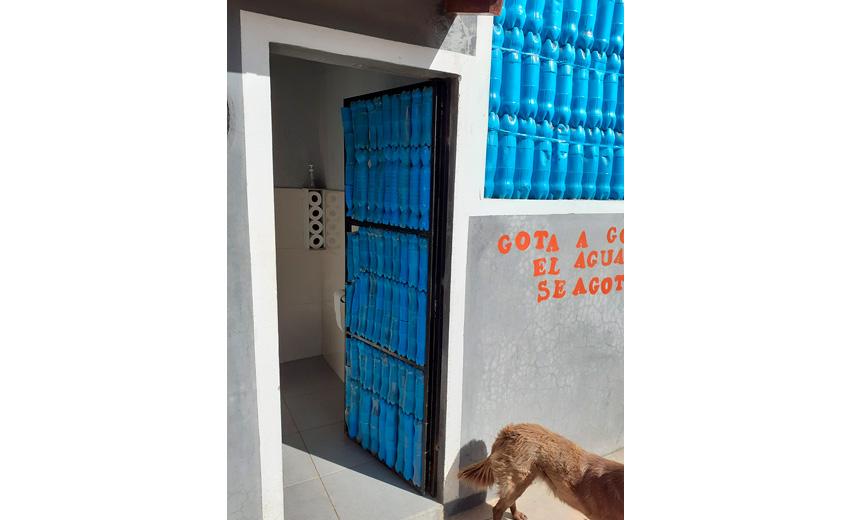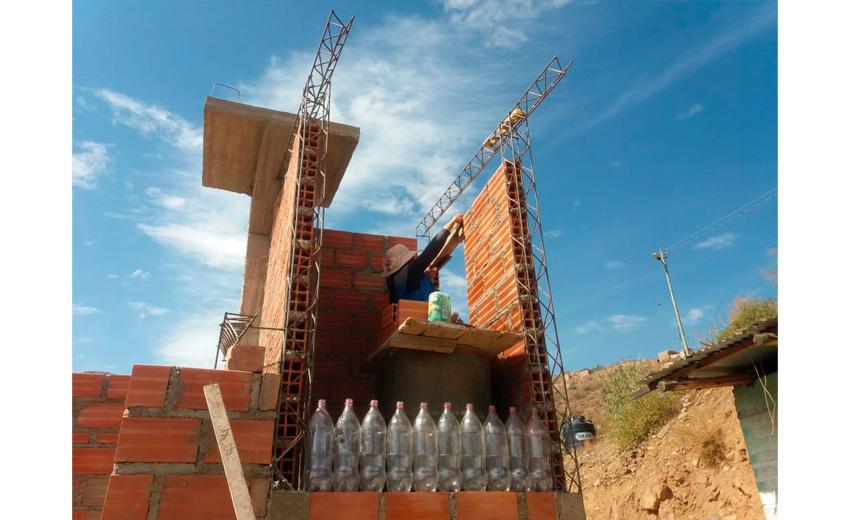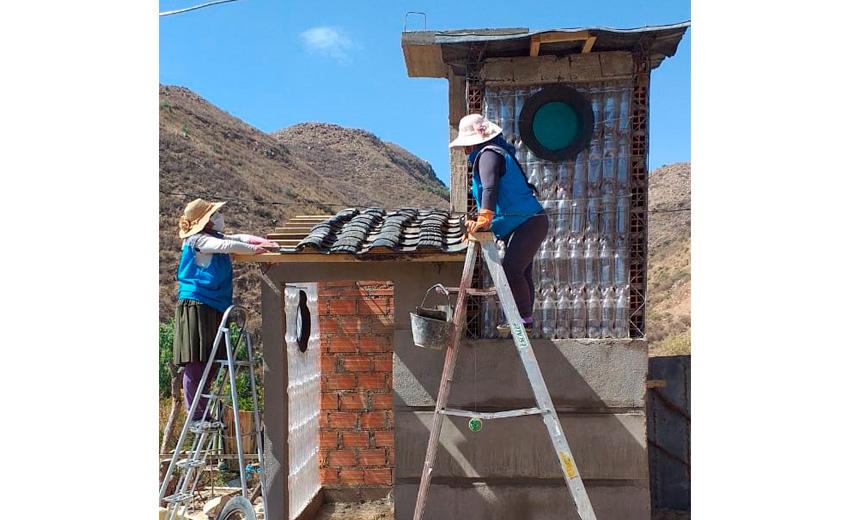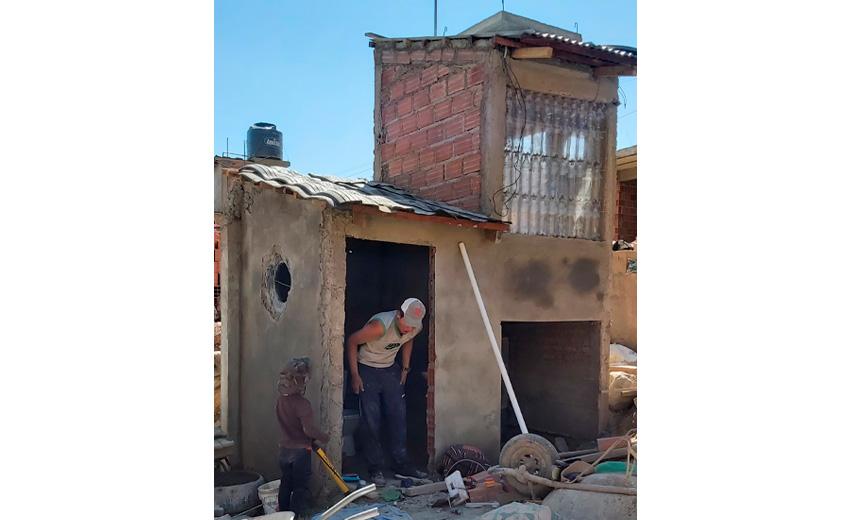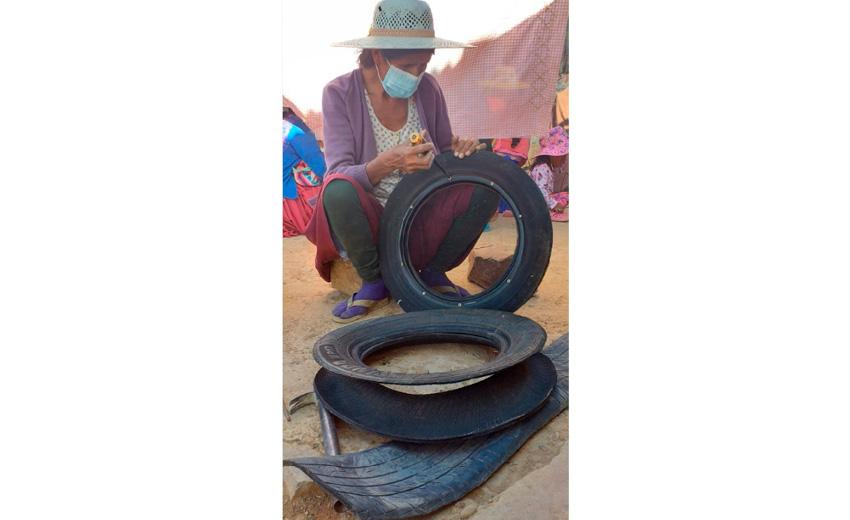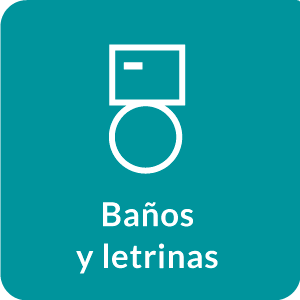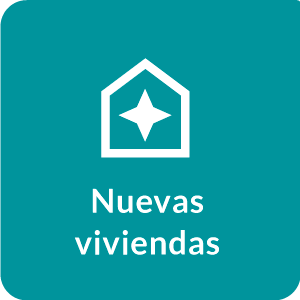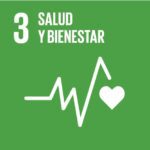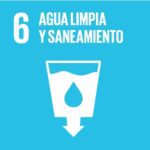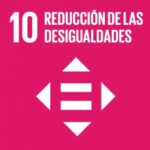Women building sustainable communities in Bolivia
Building of 60 sanitary modules with reuse of grey water and 58 household connections together with biological filters for recycling grey water from the laundry for use in urban agriculture.
RESPONSIBLE NGO
Habitat para la Humanidad Bolivia
TYPE OF SOLUTION
| PLACE OF EXECUTION Cochabamba and Viacha (El Alto), Bolivia |
BENEFICIED FAMILIES 18 |
| CONTINENT America |
BENEFICIARIES 360 |
| RESPONSIBLE NGO Habitat para la Humanidad Bolivia |
PROGRESS 100% finished |
| YEAR OF EXECUTION 2021 |
EXECUTION TIME 9 months |
Costs
- SELAVIP's contribution
$28.000 USD - Other contributions
$82.000 USD - TOTAL COST PROJECT
$110.000 USD - UNIT COST PER FAMILY
$5.500 USD
Download
This project, executed and completed during the year 2021, considered, on one hand, the building of 60 sanitary modules with reuse of grey water (from the shower and the washbasin) in the toilet in the district 9 of Cochabamba and, pn the other hand, 58 household connections together with biological filters for recycling grey water from the laundry for use in urban agriculture in Viacha (El Alto).
The solutions we wish to highlight in this opportunity are the sanitary units built in Cochabamba. Three aspects of the project are particularly interesting:
· First, the active participation of women builders in all the project’s implementation.
· Second, the use of traditional construction materials together with products such as used tyres or plastic bottles to give them a reuse in the construction of these sanitary units. As a matter of fact, the sanitary module was designed based on a pilot experience in 2019, with the challenge of lowering costs, which gave rise to the idea of using recycled materials in the construction process with the active participation of the beneficiaries.
· Third, this work has been complemented with the support of other important partners such as the Cochabamba Lions Club (who joined in the work of collecting PET bottles), the Environmental Direction of the GAMC (who gave permission to access the landfill to collect used tires) and the DAC - RENASEH project (Swiss Cooperation)..
Regarding the different stages of the project, they were divided in 6:
· Visits to the families and constitution of a family’s file.
· Meetings and constitution of the project’s committee within the beneficiaries
· Collection of reuse materials: each family was responsable for collecting a certain number of materials.
· Walls construction, building of the windows frames and the roof: together with the women builders guides, a prototype, which served as a visual model was built. Training sessions were organized on the assembly of walls with bottles, for the cutting and assembly of window frames and for the cutting and assembly of tire roofs. In some cases it was necessary to first build a retention wall since the sanitory unit would be built on a slope.
· Sanitary connections: water and sewage: once the sanitary module was roofed, with the help of installation technicians, they proceeded to mark the water route to deliver the water to the shower, washbasin and toilet, as well as the drainage directed to the collection of gray water, in the 60 sanitary modules (the grey water receiving system and/or water recycler is located under the shower and next to the washbasin to capture the water already used and thus reduce water consumption and prevent it from flowing through the pipes without first being used for another purpose such as flushing the toilet by simple gravity, as the shower is at a higher level than the toilet and washbasin). Families made holes in the walls and helped in the water and drainage connections. Finally, the hydraulic function tests were carried out.
· SENSITIZATION: Due to the increase in the number of COVID cases during the third wave of COVID 19, it was decided to change the strategy of face-to-face training to home visits to each family. the strategy of face-to-face training for the families. For this purpose, recreational material (didactic games) was developed with the content of the training topics. A game for the care and reuse of water, the use and cleanliness of the toilet; another for solid waste management and care of the environment. The was able to socialize the content of the games to a total of 135 people, including children and Young people.
Bolivia
-
Capital
La Paz (administrative capital); Sucre (constitutional [legislative and judicial] capital)
-
Continent
America
-
Population
11,832,936 (2021)
-
Languages
Spanish (official) 60.7%, Quechua (official) 21.2%, Aymara (official) 14.6%, Guarani (official) 0.6%.
-
Currency
bolivianos (Bs) 1,00 BOB = 0,14 USD
-
Government system
Presidential Republic
-
Borders
Chile, Peru, Brazil, Paraguay and Argentina
-
Area
1.098.580 km2
-
Percentage of people living in urban areas
71%
-
Yearly inflation
2,04% (July 2022)
-
Unemployment rate
8,5% (2021)
-
GDP Per Capita
USD 3,414.9 (2021)
-
Approx. minimum monthly salary
USD 302 (2,164 Bs)
-
HDI (Human Development Index)
0,72 (2019)
-
% of population living under poverty line
21,60 % (2020)


